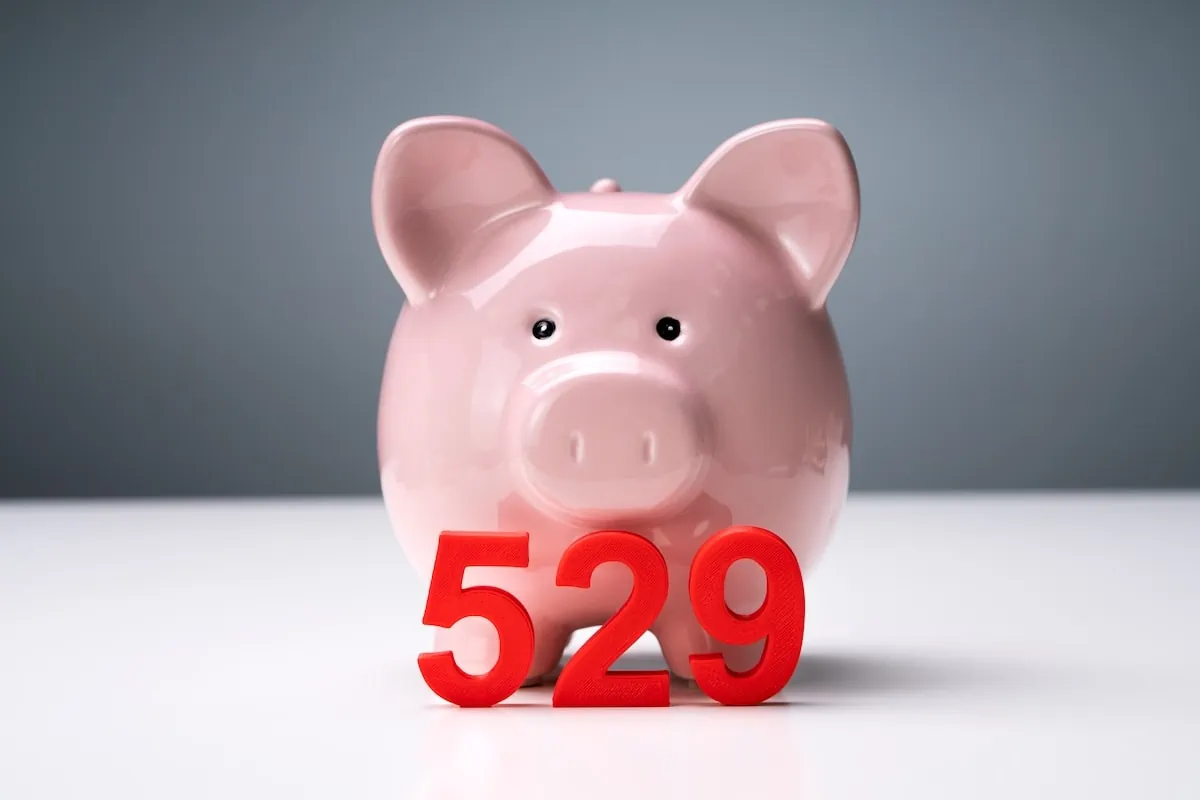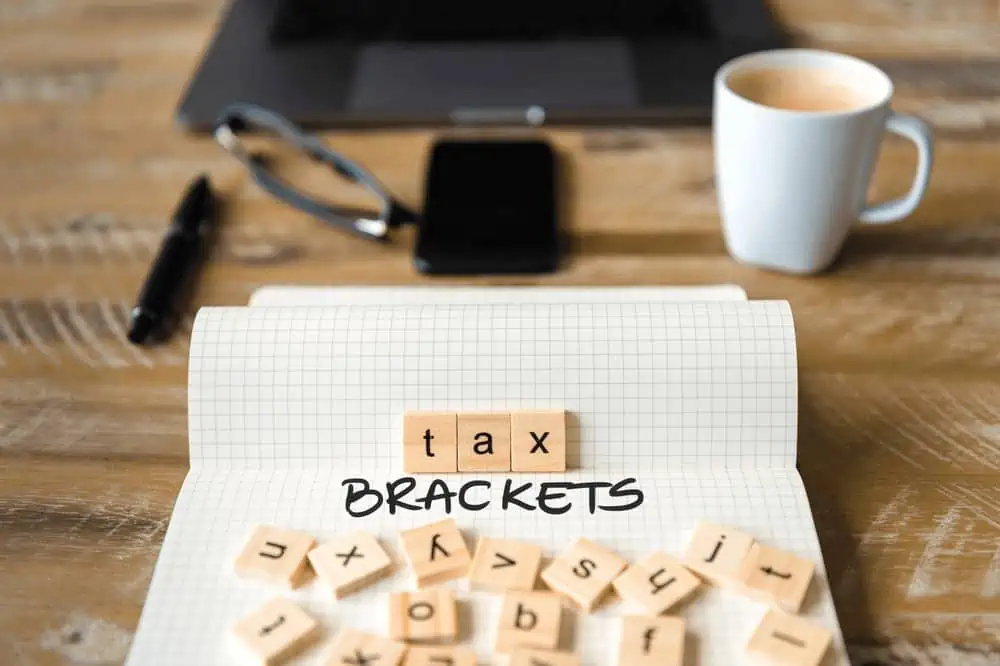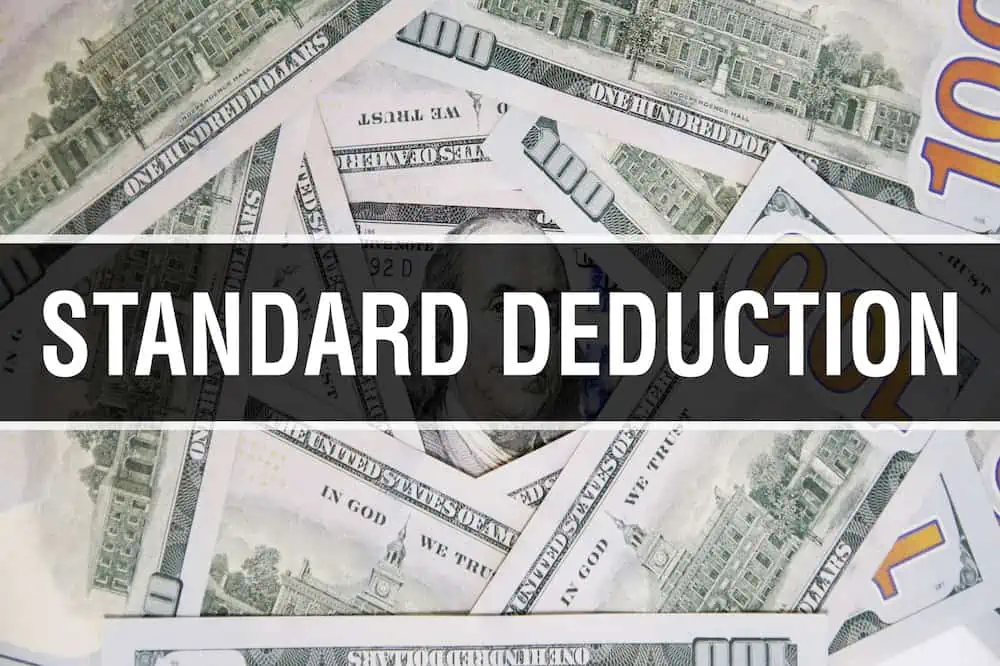After a “pause” in payments that lasted more than two years, student loan payments resumed in October 2023. So, at this point, borrowers have a few payments under their belt and are (hopefully) readjusting their budgets to accommodate monthly payments.
If you’re in that boat, don’t forget that some tax relief is available to student loan borrowers in the form of the student loan interest deduction. Anyone who qualifies for this tax deduction can reduce their taxable income by up to $2,500 per year.
Not everyone is eligible for the student loan interest deduction, though. You won’t qualify for the tax deduction if your income is too high or if you claim a certain filing status on your tax return. The deduction only applies to certain loans, and other restrictions can prevent you from writing-off your student loan interest, too.
So, is your student loan interest deductible? If so, can you claim the full deduction? I’ll answer these questions and others. If you can’t take the student loan interest deduction, maybe you can benefit from one of the other student loan-related tax breaks we touch upon below.
One way or another, you’re likely to find a tax break that helps ease the burden of paying off your student loans … you just need to find the path that works best for you.
Table of Contents
Who Can Deduct Student Loan Interest?

You’re generally eligible for the student loan interest deduction if all of the following are true for the tax year:
— You’re not using the married filing separately filing status on your tax return.
— You aren’t claimed as a dependent on someone else’s tax return.
— You’re legally obligated to pay interest on a qualified student loan.
— You actually paid interest on a qualified student loan.
What Can’t You Claim The Student Loan Interest Deduction For?

However, there are several exceptions to prevent “double dipping” (i.e., getting multiple tax breaks for the same activity or payments). You can’t claim the student loan interest deduction for any interest paid with any of the following tax-free items:
— Employer-provided educational assistance
— Tax-free distribution of earnings from a 529 plan or Coverdell education savings account
— U.S. savings bond interest excluded from taxable income because it’s used to pay qualified education expenses
— Tax-free scholarships or fellowship grants
— Veterans’ educational assistance
— Any other tax-free payments received as educational assistance (other than gifts or inheritances)
WealthUp Tip: If you’re the person legally obligated to make interest payments, but someone else (e.g., a parent) makes a payment on your behalf, you can still claim the student loan interest deduction. In this situation, it’s treated as if you received the payment from the other person and then paid the interest yourself.
Qualified Student Loans

As noted above, you must be legally required to pay, and actually pay, interest on a qualified student loan to deduct student loan interest. So, what’s a qualified student loan?
Child Tax Credit FAQs [What Every Parent Needs to Know]
Qualified student loans are taken out solely to pay qualified education expenses that were:
— For you, your spouse, or a person who was your dependent when you took out the loan
— Paid or incurred within a reasonable period of time before or after you took out the loan
— For education provided during an academic period for an eligible student enrolled at least half-time in a program leading to a degree, certificate, or other recognized educational credential
This can include both federal and private student loans. However, you can’t claim the tax deduction for interest paid on loans from a relative or from a 401(k) plan.
WealthUp Tip: Think twice before you refinance federal student loans with private lenders. Even if you’re able to get a lower interest rate, you might lose some important benefits available with federally backed loans, such as the ability to defer loan payments or switch to an income-based repayment plan if you lose your job or otherwise hit a financial wall.
There are a lot of components in the definition above. Let’s break down a few of them.
Related: What Tax Bracket Are You In?
Qualified education expenses

For purposes of the student loan interest deduction, qualified education expenses include:
— Tuition and fees
— Room and board
— Books, supplies, and equipment
— Other necessary expenses (e.g., transportation)
American Opportunity Tax Credit: Eligibility, Amount + More
The expenses must also be paid to a college, university, vocational school, or other post-secondary educational institution eligible to participate in federal student aid programs. This includes an institution with an internship or residency program leading to a degree or certificate from a college or university, hospital, or healthcare facility that offers post-graduate training.
Capital Gains Tax: What Is It, Rates, Home Sales + More
Room and board generally can’t exceed the allowance included in the school’s cost of attendance for federal financial aid purposes for a particular academic period and type of living arrangement. If the actual amount charged for room and board is greater than that amount, the deduction can be based on the larger amount if the student resided in housing owned or operated by the school.
Reasonable period of time

The “reasonable period of time” requirement is satisfied if education expenses are paid with the proceeds of student loans that are part of a federal postsecondary education loan program. You can also check that box if both are true:
— The expenses relate to a specific academic period
— The loan proceeds are dispersed within a period that begins 90 days before the start of the academic period and ends 90 days after the end of the period
If none of these situations apply, all the relevant facts and circumstances are used to determine if the educational expenses were paid or incurred within a reasonable time period.
Does My Child Have to File a Tax Return?
Academic period

An academic period includes a semester, trimester, quarter, or other period of study (e.g., summer school session). If a school uses credit hours or clock hours and doesn’t have academic terms, each payment period can be treated as an academic period.
Related: How Much Is Your Standard Deduction?
What Student Loan Interest Is Deductible?

For purposes of the student loan interest deduction, both required and voluntary interest paid during the year on a qualified student loan are deductible. You can deduct all qualified interest paid on your student loan until the loan is paid off.
Deductible interest also includes:
— Loan origination fees (except fees that are payments for property or services provided by the lender, such as commitment fees or processing costs)
— Capitalized interest (i.e., unpaid interest that’s added to the outstanding principal)
— Interest on a revolving line of credit
— Interest on refinanced or consolidated student loans
Do You Have to File Taxes This Year?
However, you can’t claim the student loan interest deduction for if, under the terms of your loan, you aren’t legally obligated to make interest payments.
You also can’t deduct interest on a student loan to the extent payments were made through your participation in the National Health Service Corps Loan Repayment Program or certain other loan repayment assistance programs.
Related: How Much to Save for Your Kid’s College
How Much Is the Student Loan Interest Deduction in 2023 vs. 2024?

How much interest is deductible depends on your filing status and income level.
Federal Tax Brackets and Rates [2023 + 2024]
As noted earlier, the maximum amount deductible is $2,500. However, for the 2023 tax year, the full student loan interest deduction is phased out (i.e., gradually reduced to zero) if your modified adjusted gross income (MAGI) is between:
— $75,000 and $90,000 for single filers, head-of-household filers, or surviving spouses ($80,000 to $95,000 for 2024)
— $155,000 and $185,000 for married couples filing jointly ($165,000 to $195,000 for 2024)
Because of these income limits, you can’t claim the deduction at all for 2023 if your MAGI is over $90,000 for single filers, head-of-household filers, or surviving spouses, or over $185,000 for joint filers (over $95,000 or $195,000, respectively, for 2024).
11 Education Tax Credits and Deductions for 2024
You also can’t claim the deduction if you use the married filing separately filing status or can be claimed as a dependent on someone else’s tax return for the year.
WealthUp Tip: You should receive Form 1098-E from your lender or loan servicer if you paid $600 or more on one or more qualified student loans during the year. The amount of interest paid will be shown in Box 1. However, if you paid qualifying interest that isn’t included on Form 1098-E, you can still claim the student loan interest deduction for those amounts.
Modified Adjusted Gross Income

Modified adjusted gross income is usually just your adjusted gross income as calculated on your federal income tax return, before subtracting any deduction for student loan interest. However, the “modified” part is for people claiming the following tax breaks, which must be added to their adjusted gross income to determine their MAGI:
— Foreign earned income exclusion
— Foreign housing exclusion
— Foreign housing deduction
— Exclusion of income by residents of Puerto Rico or American Samoa
Related: Should You Invest or Pay Off Student Loans?
Other Student Loan-Related Tax Breaks

There are several education-related tax breaks for college students and others seeking additional knowledge, including tax credits like the American Opportunity tax credit and the Lifetime Learning credit.
Some of the additional tax breaks are aimed specifically at private and federal student loan borrowers. So, if you don’t qualify for the student loan interest deduction, people with student loan debt still might be able to lower their tax bill with one of the following tax benefits.
Student Loan Forgiveness and Repayment Assistance

Normally, if a debt is canceled or paid by someone else, you must pay tax on the amount that was canceled or paid on your behalf. However, from 2021 through 2025, most people can exclude this amount from their taxable income if their student loan is forgiven. This includes both private student loans and federal student loans that aren’t insured or guaranteed by the government.
Retirement Plan Contribution Limits and Deadlines for 2023
In addition, canceled student loan debt generally isn’t taxed if it’s canceled because of a provision in the loan agreement requiring cancellation if you work for a certain period of time in certain professions for any of a broad class of employers.
If someone gives you money to pay off your student loan (instead of having your loan canceled), those payments are also excluded from your gross income if they’re received from either:
— The National Health Service Corps Loan Repayment Program
— A state education loan repayment program eligible for funds under the Public Health Service Act
— Any other state loan repayment or forgiveness that provides increased availability of health services in underserved or health professional shortage areas
Charitable Tax Deduction: What to Know Before Donating
Payment of Student Loans with 529 Plan Funds

With a 529 plan, you contribute money to an account set up for a designated beneficiary (such as a child or grandchild), that money grows tax-free, and withdrawals from the account are also tax-free as long as the funds are used for qualified education expenses.
If 529 plan funds aren’t used for qualified education expenses, a 10% penalty applies and related earnings are considered taxable income.
However, if there’s money leftover in a 529 plan after all the beneficiary’s educational costs have been paid, up to $10,000 of the unused funds can be used to pay off student loans for the beneficiary or a sibling.
WealthUp Tip: There are other options for leftover 529 plan money, too. For example, you can transfer unused funds to a family member’s 529 account or ABLE account. Starting in 2024, you can roll over up to $35,000 of leftover money in a 529 plan that’s been open for at least 15 years into a Roth IRA in the beneficiary’s name. The money can also be left in the account in case the beneficiary decides to take additional classes in the future.
Related: Best Alternatives to 529 Plans [Other College Savings Options]
Employer-Provided Educational Assistance

Did you know that you don’t have to pay tax on up to $5,250 of educational assistance benefits you receive from your employer each year? It’s true—as long as the benefits are offered through a written educational assistance program.
IRS Delays 1099-K Rules: What PayPal, Venmo, StubHub Users Need to Know
And the good news for people with student loans is that payments by an employer for a worker’s student loan debt qualify for this tax exemption. The bad news is that student loan payments only qualify through 2025.
Retirement Saver’s Credit: What Is It, How Much, Who’s Eligible + More
You must pay tax on any employer-provided student loan assistance over the $5,250 annual cap, unless it qualifies as a working condition fringe benefit (i.e., it could be deducted as a business expense if you paid for it).
What Tax Bracket Are You In?

Perhaps the best way to lower your federal income tax bill is push yourself down into a lower tax bracket to reduce your tax rate. On the flip side, you certainly want to avoid getting kicked into a higher bracket and increasing your tax rate.
But, of course, under either scenario you need to have a good feel for where you are right now. For that purpose, check out the federal tax brackets and rates that will apply for your next federal tax return.
What’s Your Standard Deduction?

For most people, their largest and most important tax deduction is the standard deduction. However, the standard deduction amounts change every year to account for inflation. Plus, the standard deduction isn’t the same for everyone.
So, before start your tax return or jumping into tax planning mode, you’ll need to know how much your standard will be for the tax year.
Capital Gains Tax: What You Need to Know

Millions of Americans sell stocks, bonds, cryptocurrency, real estate, precious metals, and other types of investment property every year. However, if you sell investments during the year, you might owe capital gains tax on any profits.
The good news is that you’ll pay a lower tax rate on capital gains when compared to income taxes on wages, tips, and other “ordinary” income. On the other hand, there are a few landmines to avoid when you sell investment property. Get all the details with our guide to the capital gains tax.




